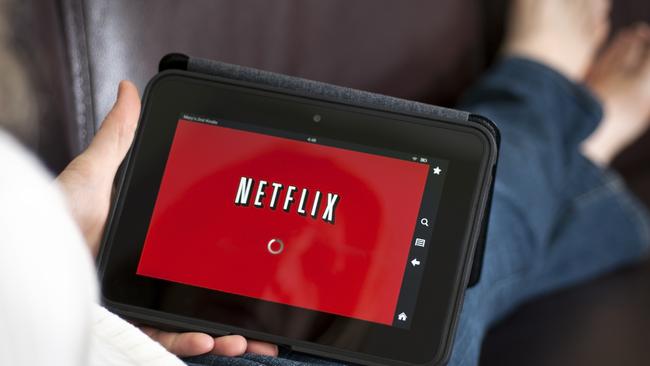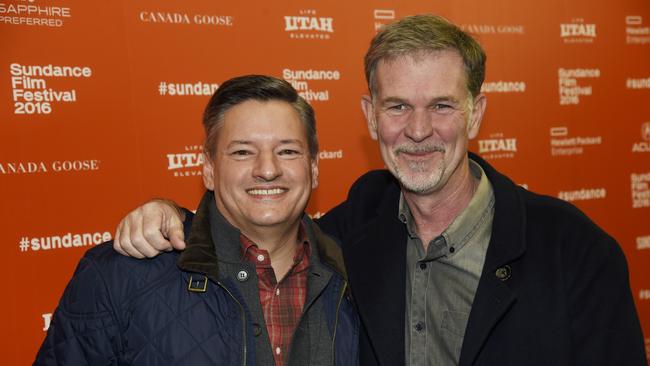Blocking wars: Netflix strikes back in battle over catalogue access
It is Netflix versus the world over movie streaming rights. What are likely outcomes for consumers and local services?

The war that is raging over our access to Netflix content not licensed to this country has enormous implications. It has the potential to disrupt and destroy the businesses of smaller movie streaming services. It also could destroy any hope of film studios negotiating lucrative movie rights region by region.
Netflix launched in Australia less than 12 months ago, in March last year. And its growth since has been phenomenal. By August it was in 8 per cent of Australian homes, reaching 1.89 million locally, according to Roy Morgan research. By December it was being watched by 2.73 million Australians, equivalent to 13.9 per cent of those aged 14 or over.
But not everyone is happy about the smaller catalogue of movies and TV shows available to Australian Netflix users compared with US subscribers. At launch, it was estimated Netflix Australia had one-sixth the content of Netflix USA. Netflix simply did not have the rights to most of its US collection in the Australian market.
It’s therefore not surprising that many Australian Netflix users want to access the US Netflix catalogue. This need is nothing new because before Netflix launched in Australia, 340,000 Australians already had been accessing Netflix US content. Under pressure to act, Netflix placed some roadblocks to stop you doing this. You couldn’t sign up with an Australian credit card, and the address of your devices accessing Netflix, known as the IP address, had to originate from the US.
Netflix devised these restrictions to appease movie houses and other streaming services that were livid that Netflix otherwise would offer content it did not own to millions outside the US.
But these roadblocks were easily overcome. First, you could buy a Netflix gift card and use it to join the US service without having to declare your Australian credit card.
Secondly, a series of “unblocker services” sprang up online. Some were free. Some would charge up to $5 a month. They offered your internet TV, tablets or phones an internet tunnel into the US that tricked Netflix into thinking you were a genuine US customer. Some such as unblock-us.com had a drop-down menu that let you select which country’s Netflix catalogue you wanted to access.
Netflix didn’t try hard to close the unblocking services. Why go out of your way to anger your customers? The unblockers, meanwhile, were making a small fortune. They offered clear how-to configuration guides that even the less tech savvy among us could follow. Unblocking your Netflix access to US content turned into a global pursuit.
From time to time, Netflix would threaten to crack down on the unblockers, but its efforts seemed half-hearted. That was until this month. At the CES consumer technology show in Las Vegas, Netflix chief executive Reed Hastings announced the service was going global: Netflix would be available in 190 countries. This announcement no doubt sent shivers down the spines of streaming services in countries new to the service.
It also had the potential to enrage the movie studios negotiating sales of its content in each country and geographic region. If everyone could flock to Netflix USA, who would buy the rights in other countries to content owned by Netflix in the US?
Netflix gave the impression of fire in its nostrils. In a blogpost, vice-president of content delivery architecture David Fullagar said the streaming service would move to nullify the unblocking services, thereby restricting viewers to the Netflix content available in their countries.

“Some members use proxies or ‘unblockers’ to access titles available outside their territory,” Fullagar wrote. “In coming weeks, those using proxies and unblockers will only be able to access the service in the country where they currently are. We are confident this change won’t impact members not using proxies.”
Netflix had declared war on the unblocking services and would negate those services’ ability to hide their customers’ non-US identities. Their true locations would be unmasked. By last week, the stage was set for a technology-based war between Netflix and the unblocker services.
On Thursday, some Australian and New Zealand customers — the first to be targeted — seemed to be out of luck. When they tried accessing Netflix, they received notifications that they had to remove their unblocking service, or VPN, which stands for virtual private network. Otherwise there would be no movie access.
Being technically savvy folk, the unblocking services decided to take Netflix on. By the weekend, Melbourne-based unblocking service uFlix.com.au was saying it had put “a fix” in place to negate Netflix’s attempts. If you were a uFlix customer, you were back in business with US content. Earlier this week, uFlix managing director Peter Dujan said the fix was still working. Round one to the unblockers.
It is still early days. When I spoke to the unblockers, they detailed other technical ways that Netflix could enforce its geo-blocking edict. But services such as uFlix believe they have Netflix on the ropes. “Unless some sort of technology comes out that no one’s ever heard of before, pretty much anything implemented can be bypassed. As long as what we’re doing remains legal, there’s no issue,’’ Dujan tells The Australian.
The Toronto-based co-founder of TVUnblock.com, Dave Brown, says he is confident about winning the tech battle against Netflix. Unblock-us.com thinks likewise. This week Mr Brown said Netflix had also started targeting users in some countries in Europe, and the UK in particular, with their notifications.
“I would expect for Canada to follow suit in the coming week or two.,” he said.
It will be fascinating to see what technical measures Netflix introduces and how the unblockers counter them in this complex technical war. If Netflix wins, infuriated consumers may buck the system again rather than sign up with multiple movie streaming services. They might return to using pirated sites and torrents to download the movies and TV shows they want to watch.
If the unblockers win, that means the regionally based copyright system is effectively unenforceable. Netflix would be conceding it cannot technically enforce regional restrictions. A broken regional system for negotiating copyright would be a disaster for movie houses, which would lose the revenue, and single-country-based streaming services competing against the monolith.
As a result, studios would have to move to negotiating global rights rather than multiple country-by-country rights. The other option is for single-country services to form global alliances with like-minded services in other countries. They could bid collectively for movies and share a common catalogue.
Joint bidding and alliances are already happening. The Wall Street Journal reports that in France, TV stations are getting together to outbid Netflix for top programs. Viaplay in Denmark had reportedly been in talks with Australia’s Stan while Lightbox in New Zealand has held talks with Netflix US rival Hulu.
Many also want to see a revamped globalised copyright system that understands there are no international boundaries in the modern online world.
With so much money and revenue at stake, and with audience disenchantment a risk, it’s likely the face of movie streaming will change. It’s another example of how technology disrupts industries, for better or for worse.
Leading Australian streaming services
Netflix
The California-based multinational, formed in 1999 as a DVD subscription-based service, is now the world’s biggest media streaming company. From $8.99 a month.
Presto
A joint venture between Foxtel and Seven West Media. TV only, $9.99 a month; movies only, $9.99 a month; movies and TV, $14.99 a month.
Foxtel Play
Includes mobile and Foxtel Go; customers can add genre packs. From $25 a month.
Stan
The joint venture between Fairfax Media and Nine Entertainment is operated by StreamCo.
Quickflix
The Australia-NZ firm with a large Nine Entertainment shareholding offers premium streaming; hiring of Blu-ray and DVDs also available. From $9.99 a month.


